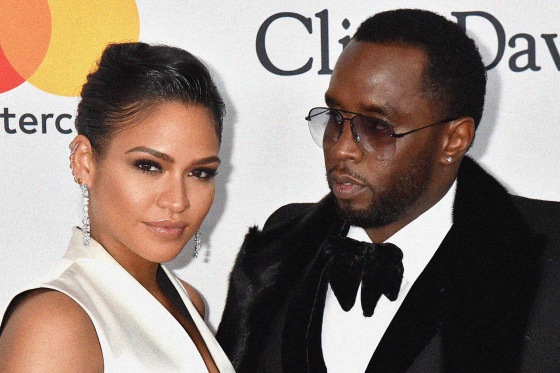Thursday’s proceedings witnessed the prosecutor painting a picture of Sean Combs as the mastermind behind a criminal ring, a man who never took ‘no’ for an answer. The closing argument of the government in Mr. Combs’ trial for sex trafficking and racketeering conspiracy presented him as a character who deployed power, violence, and fear to attain his objectives, according to the prosecutor’s accounts shared with the jurors.
The trial has spanned across 28 days, during which Mr. Combs was under intense examination regarding his violent tendencies and an unusual preference for observing his girlfriends involved in sexual encounters with male escorts. The challenge in front of the prosecution now is to make the jurors believe that such behaviour is not just personal but criminal.
Entering his plea as not guilty, Mr. Combs vehemently denies all accusations against him. However, the prosecutors remain persistent in their efforts to prove before the jurors that Mr. Combs didn’t merely commit individual offenses but was in fact leading a comprehensive criminal operation that persisted for years, engaging in nefarious activities such as sex trafficking, distribution of narcotics, and other related crimes.
The prosecution is leveraging a federal law originally aimed at curbing Mafia activities, a law that is now being directed towards Mr. Combs. Facing two counts of sex trafficking, a single count of racketeering conspiracy, and two counts of arranging to carry out prostitution, Mr. Combs finds himself in a precarious position.
In order to pronounce him guilty of any of these charges, the jury must achieve a consensus. They must be unanimous in their decision, convinced without a shred of doubt that Mr. Combs is guilty of the crime he stands accused of.
In response to these accusations, Mr. Combs’ defense counsel has been striving to convince the jurors that the sexual encounters central to the case were all consensual. Despite its confirmation that Mr. Combs had issues concerning domestic abuse and drug addiction, the defense insists that the sexual incidents were mutual and voluntary.
Testifying before the court, pop artist Casandra Ventura, who goes by the stage name Cassie and had been in a relationship with Mr. Combs for an extended period, expressed her emotions openly. Tearfully, she recounted explicit and prolonged sexual experiences with Mr. Combs, experiences that left her feeling ‘humiliated’ and ‘disgusting’.
Adding another grave dimension to her testimony, she revealed that Mr. Combs possessed sexually explicit videos documenting their intimate encounters, which she feared could potentially be used as ‘blackmail weaponry.’ Even though such acquisitions are deeply unsettling, the defense argued that these activities do not meet the legal criteria for kidnapping, as the encounters were consensual.
The defense disputed the damning allegations against Mr. Combs, arguing that Ms. Ventura willingly participated in the encounters. In what seemed a move to lessen the severity of the charges against Mr. Combs, his lawyers argued that her participation negates the charge of kidnapping.
In the course of the trial, the prosecutor identified several people who served on Mr. Combs’ security team over time. Individuals addressed as D-Roc, Faheem Muhammad, Uncle Paulie, and Roger Bonds were made known to the court. The prosecution claimed these individuals were fundamental components to Mr. Combs’s supposed criminal conspiracy.
However, it’s important to note that none of these security detail staff members have been formally charged with any crimes. The prosecutor suggested that despite their lack of formal charges, their ties to Mr. Combs are not without suspicion.
The prosecutor’s argument thus seeks to portray not just an isolated crime, but an intricate network of unlawful operations with Mr. Combs at the helm. The stage is set for a legal showdown as the jury weighs the testimonies and evidence presented during the intense 28-day trial period.
While the proceedings continue, it’s clear that Mr. Combs stands accused not only of the overt charges laid out against him, but also of an underlying implication that he was cultivating an environment of fear and intimidation. The trial documents an insider’s view of a high-profile lifestyle intertwined with allegations of sex, power, and criminal activities.
Ultimately, the outcome of the trial depends on the jury, a group tasked with determining whether the evidence against Mr. Combs is undeniably indisputable. The decision hangs in the balance: will they agree the prosecution has established beyond a reasonable doubt that Mr. Combs led a criminal organization?
As the trial progresses and further testimonies are heard, it remains to be seen if the prosecutor’s arguments will persuade the jury of Mr. Combs’ alleged criminal activities and if his defense will manage to discredit the charges. Only the unanimous vote of the jurors can decide Mr. Combs’ fate.

